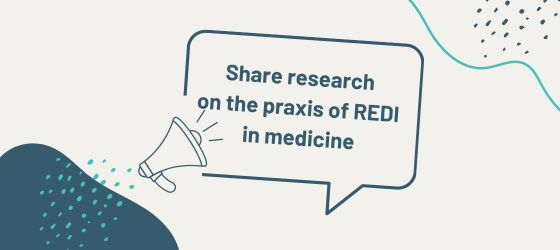
Research Voices from the Field is a new feature that showcases cutting-edge research that breaks barriers and promotes inclusion in medicine. Each edition spotlights a research publication and includes insights directly from the authors—revealing their motivations, the significance of their findings, and why the research matters for healthcare professionals everywhere.
In this edition, Rabia Khan, Scientist at the Centre for Health Education Scholarship and Assistant Professor in the Department of Pediatrics, reflects on why she co-authored “Constructing “Burnout”: A Critical Discourse Analysis of Burnout in Postgraduate Medical Education“, the first paper from her doctoral dissertation Dying to Stay Alive in Residency and Beyond, highlighting its relevance for policymakers, educators, leaders, and trainees.

Rabia Khan, Scientist at the Centre for Health Education Scholarship and Assistant Professor in the Department of Pediatrics, reflects on why she co-authored “Constructing “Burnout”: A Critical Discourse Analysis of Burnout in Postgraduate Medical Education“, highlighting its relevance for policymakers, educators, leaders, and trainees.
This paper is the first from my doctoral dissertation, “Dying to Stay Alive in Residency and Beyond: A Critical Discourse Analysis of Burnout”, in which I was trying to answer a pressing question: why does burnout persist, despite efforts to ameliorate it? This paper is not only relevant to policymakers, educators, and leaders but, more importantly, it’s a love letter to trainees. Through my research, I found that while ‘burnout’ impacts everyone, the way we talk about it often doesn’t reflect the lived experiences of those most affected.
This is exacerbated by the finding that there are more studies quantifying the amount of burnout or proposing solutions to burnout, then there are trying to understand how and why this effects health workers in the way that it does. In this paper, I highlight how workplace culture has been colonized and shaped by Western-centric notions like burnout—ideas that organizations can monitor, promote, and challenge at an individual level. But this depoliticization of health into a wellness issue has real consequences for health workers themselves. I argue that to mitigate burnout’s effects, we need to focus on cultural resiliency, not just individual resiliency. And more importantly, we must continue advocating for structural changes that are equity informed and support those who are often silenced in this research.
Constructing “Burnout”: A Critical Discourse Analysis of Burnout in Postgraduate Medical Education
Authors: Rabia Khan, Brian David Hodges, Maria Athina Martimianakis
Abstract
Purpose: In 1974, Dr. Herbert Freudenberger coined the term burnout. With the creation of the Maslach Burnout Inventory in 1984, burnout went from a pop psychology term to a highly studied phenomenon in medicine. Exponential growth in studies of burnout culminated in its adoption into the International Classification of Diseases-11 in 2022. Yet, despite increased awareness and efforts aimed at addressing burnout in medicine, many surveys report burnout rates have increased among trainees. The authors aimed to identify different discourses that legitimate or function to mobilize burnout in postgraduate medical education (PGME), to answer the question: Why does burnout persist in PGME despite efforts to ameliorate it?
Method: Using a Foucauldian discourse analysis, this study examined the socializing period of PGME as an entry point into burnout’s persistence. The archive from which the discourses were constructed included over 500 academic articles, numerous policy documents, autobiographies, videos, documentaries, social media, materials from conferences, and threads in forums including Reddit.
Results: This study identified 3 discourses of burnout from 1974-2019: burnout as illness, burnout as occupational stress, and burnout as existentialism. Each discourse was associated with statements of truth, signs and signifiers, roles that individuals play within the discourse, and different institutions that gained visibility as a result of differing discourses.
Conclusions: Burnout persists despite effort to ameliorate it because it is a productive construct for organizations. In its current form, it depoliticizes issues of health in favor of wellness and gives voice to the challenge of making meaning from the experience of being a clinician.

Have you’ve published or come across valuable research on the praxis of REDI in medicine? Share it today.
We especially welcome submissions of research articles that explore equity, diversity, inclusion, justice, decolonization, Indigenization, or trauma-informed practices in medicine and healthcare.